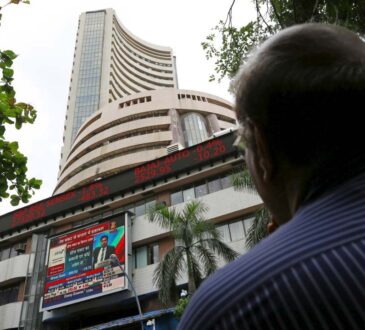
The S&P 500 rose 0.7% and topped the 5,600 level for the first time, on track to set an all-time high for the 37th time this year. The Nasdaq composite was also on pace for a seventh straight gain, adding 1% to its record set a day before. The Dow Jones Industrial Average was up 250 points, or 0.6%, with a little less than an hour remaining in trading.
Big technology companies led the way, which has become the norm on Wall Street, and Taiwan Semiconductor’s U.S.-listed shares rose 3.1% after it said its revenue climbed nearly 33% in June from a year earlier.
Taiwan Semiconductor, or TSMC, makes the chips for Nvidia and others that have been driving the business world’s rush into artificial-intelligence technology. The promise of big profits in the future from AI has sent Nvidia in particular to breathtaking heights over the last year, and Nvidia rose another 2.4% Wednesday to bring its gain for the year so far to 171.6%. It was again the strongest single force pushing the S&P 500 upward.
The frenzy around AI has been a major reason the U.S. stock market has climbed to records despite a slowdown in the economy’s growth and a tightening squeeze on lower-income households. So have hopes that inflation is slowing enough for the Federal Reserve to deliver much-sought cuts to interest rates later this year.
Fed Chair Jerome Powell returned to Capitol Hill to give testimony about interest rates, where he echoed many of his comments from a day before. He said he was “not sending any signals” about when cuts to rates could arrive, but he’s aware of the risks of being too late on them.
“We’re looking at both sides” of the risks involved in what to do with its main interest rate, which has been sitting at its highest level in more than two decades for nearly a year, Powell said. Cutting rates too early could allow inflation to reaccelerate, while waiting too long could allow the economy’s slowdown to gather into a recession.
Much of Wall Street is expecting the Fed to begin cutting its main interest rate in September, but traders have a long history of being premature in their calls. Powell gave a nod to recent reports showing improvement in inflation following a discouraging start of the year, but he said again the Fed doesn’t have enough confidence that inflation is sustainably heading toward its goal of 2%.
“More good data would strengthen our confidence” and clear the way for a cut, Powell said.
The yield on the 10-year Treasury edged down to 4.28% from 4.30% late Tuesday and from 4.70% since April. The move since the spring is a significant one for the bond market and offers support for stock prices.
The two-year Treasury yield, which moves more on expectations for Fed action, ticked up to 4.63% from 4.62% late Tuesday.
A report coming on Thursday could cause sharper swings in the bond and stock markets. That’s when the U.S. government will release the latest monthly update on inflation. Economists expect it to show U.S. consumers paid prices for food, airline tickets and everything else that were 3.1% higher in June than a year earlier. That would be a touch slower than May’s 3.3% inflation rate.
Later this week will also bring the unofficial start to the latest earnings reporting season. Delta Air Lines, JPMorgan Chase and others will report how much profit they made during the spring from April through June, and the hope on Wall Street is for S&P 500 companies to deliver the strongest growth in more than two years.
Smart Global Holdings, a technology company with computing, memory and LED businesses, rose 25.8% after it reported stronger profit and revenue for the latest quarter than analysts expected.
On the losing end of Wall Street was LegalZoom, which fell 22.5%. It said its CEO, Dan Wernikoff, is leaving the company and resigning from its board. The company also cut its forecast for revenue over the full year.
In stock markets abroad, Japan’s Nikkei 225 rose 0.6% to close at another record. It’s jumped 25% so far this year, even more than the U.S. stock market, as AI enthusiasm has pushed up its technology stocks. Its exporters are also benefiting from the yen’s falling value against the dollar, which can boost their profits.
Other markets in Asia were mixed, while European indexes were higher.
___
AP Business Writers Matt Ott and Elaine Kurtenbach contributed.


